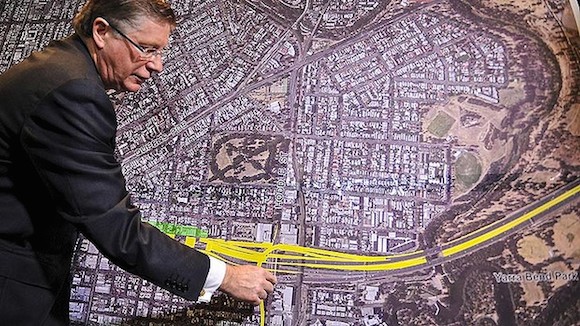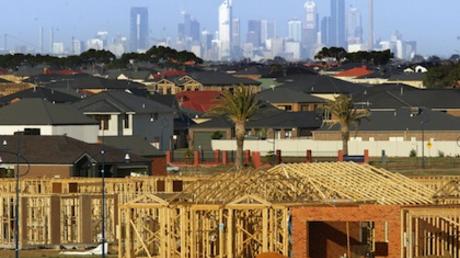
When the State Government of Victoria was preparing metropolitan Melbourne’s 2014 strategic plan, Minister Matthew Guy’s Ministerial Advisory Committee found that public transport and protecting public open space were the top concerns of Melbourne’s citizens. Despite this the State Government's latest planning strategy, Plan Melbourne, prioritises the East West (road) Link and commits resources to the eastern half of the link, which will compromise Royal Park.
Professor Roz Hansen, resigning as chairwoman of the committee late last year, commented that: "We are not being asked by government if we want this project; we are being told we must have it noting that there isn’t a week that goes by that the evidence against this project grows and grows. … Metropolitan road transport solutions used in the 1960s and '70s do not make a great 21st century city".
The global trend is that city-regions the size of Melbourne become relatively independent of both state and central governments.
Is this criticism fair? When Professor Hansen goes on to say that "if you only have one pot of money to spend on a major transport improvement it is not the East West Link", is the point not just that there is only one pot, but also that the pot is dependent on grant funding from a Prime Minister who has indicated that his government will not fund public transport?
Without a constitutional mandate to prescribe State investment in private transport, but in a context of "vertical fiscal imbalance" where the Commonwealth Government gets more tax revenue than it needs, it can set the funding parameters for major transport infrastructure projects.
Within these parameters, the State Government selects for metropolitan Melbourne the project it either determines to be the best on merit or, at the least, the one most likely to score funding. Cynics might question whether there is a third filter which favours those projects most likely to score votes in the next state election.
Excluded from all these decision-making constructs are Melbourne’s citizens as a metropolitan constituency. Representatives in the Victorian Parliament whose seats are located in metropolitan Melbourne are preoccupied with their prospects in the next State Election. Their focus is not on a wholistic vision for the future metropolis, but on their seat and their party. In the absence of a vote as a metropolitan constituency there is a metropolitan ‘democratic deficit’.
Notably absent from the comment regarding there being "one pot of money" is recognition that there need not be just one pot. Were there to be a revenue-generating metropolitan government that could engage in its own municipal infrastructure finance options, metropolitan voters could pursue more than one major project with relative independence from the State and Commonwealth governments.
Australian media and academic commentary pays remarkably little attention to the constitutional anachronism - arising from negotiations over the roles and responsibilities and funding of state and Commonwealth governments – that effectively locks out mention of local government.
Prime Minister Tony Abbott has initiated White Papers on the Reform of the Federation and the Reform of Australia’s Tax System. Not included in either is a concern with effective metropolitan governance.
The global trend is that city-regions the size of Melbourne become relatively independent of both state and central governments. Metropolitan voters determine the city-shaping infrastructure projects that affect their economic, social and environmental future.
Without metropolitan government and with a Commonwealth government controlling the pot of money, not only is democracy compromised, so too is Melbourne’s economy.
Professor Richard Tomlinson is Chair in Urban Planning at the Melbourne School of Design, Faculty of Architecture, Building and Planning at the University of Melbourne.




